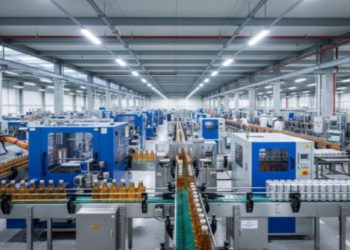To run a manufacturing company efficiently, it’s not enough to follow the status quo. Managers must stay abreast of innovative strategies and tools that streamline operations, maintain high safety standards, and ultimately boost the bottom line. From tapping into the potential of Knowledge Management (KM) to the disciplined application of Lean manufacturing principles, there’s a wealth of tactics at your disposal. In this article, we’ll look at methods to optimize manufacturing efficiency.
Implementing Knowledge Management in Manufacturing Operations
KM is integral to creating an environment where information is easily accessible for decision-makers and frontline workers. A robust KM system in manufacturing ensures that best practices, machinery manuals, and troubleshooting procedures are systematically organized and retrievable. This reduces downtime and ensures consistent quality across the product line.
Manufacturers leveraging KM can react swiftly to market changes. By analyzing historical data and comparing it with current trends, they can anticipate customer demands and adjust their strategies accordingly. This proactive approach helps manage inventory, streamline production schedules, and enhance customer satisfaction.
Training also becomes more efficient with a KM system in place. New employees can assimilate information quickly, while existing staff can stay up-to-date with the latest operational advancements. This knowledge-sharing culture fosters continuous improvement and innovation within the organization.
However, the proper implementation of KM is not without challenges. It requires investment in appropriate technology, but more importantly, it demands a cultural shift where knowledge sharing is encouraged and valued. Fostering an environment that embraces knowledge as a key resource is foundational to its success.
Utilizing Pipe Caps for Safety and Efficiency in Manufacturing Processes
In the context of manufacturing, the integration of seemingly small components, such as pipe caps, can have significant implications for the safety and efficiency of operations. Pipe caps serve as protective covers for pipe ends, ensuring the interiors are shielded from contaminants that can cause corrosion or blockage.
These components maintain the integrity of machinery that relies on piping systems for hydraulic or chemical processes. Using high-quality pipe caps translates into fewer system failures and higher standards of product purity – critical factors in the pharmaceutical, food, and chemical industries.
Moreover, pipe caps are essential in promoting the safety of workers. Covering sharp pipe ends or protruding threads they help prevent workplace injuries. This protective measure is necessary not only for employee safety but also for complying with rigorous industry regulations.
When selecting pipe caps for manufacturing processes, it’s necessary to choose durable, well-designed caps that can withstand the rigors of the production environment. Given their functional and safety significance, quality cannot be compromised, and sourcing from reputable suppliers is essential.
Importance of Regular Equipment Maintenance and Upgrades
Regular maintenance is the lifeblood of any manufacturing operation, ensuring machinery and equipment operate reliably and at peak performance. A well-maintained machine is less likely to break down, which can cause costly interruptions and endanger production targets.
Moreover, periodic maintenance helps to identify when equipment upgrades are necessary. Keeping up with technological advancements can increase efficiency, produce better quality products, and create a safer working environment. Upgrading to more energy-efficient machines also cuts operating costs in the long run.
Another significant aspect of regular maintenance is the opportune calibration of machines, which is crucial to maintain product quality. Meticulous product standards are more easily met when equipment operates precisely as intended.
The maintenance schedule must be meticulously planned and followed. Unexpected equipment failure not only results in production halts but may also necessitate expensive rush orders for parts or replacements, complicating budget management.
Overall, manufacturing companies can boost their operational efficiency, worker safety, and profitability by embracing strategies from Knowledge Management to using simple yet vital components like pipe caps. It is the integration of such systematic methods and attention to detail that propel manufacturing operations to success in a competitive marketplace.
David Prior
David Prior is the editor of Today News, responsible for the overall editorial strategy. He is an NCTJ-qualified journalist with over 20 years’ experience, and is also editor of the award-winning hyperlocal news title Altrincham Today. His LinkedIn profile is here.

![7 Best POS Software in the UK [2026 Edition]](https://todaynews.co.uk/wp-content/uploads/2026/02/7-Best-POS-Software-in-the-UK-2026-Edition-360x180.png)




































































![7 Best POS Software in the UK [2026 Edition]](https://todaynews.co.uk/wp-content/uploads/2026/02/7-Best-POS-Software-in-the-UK-2026-Edition-120x86.png)






